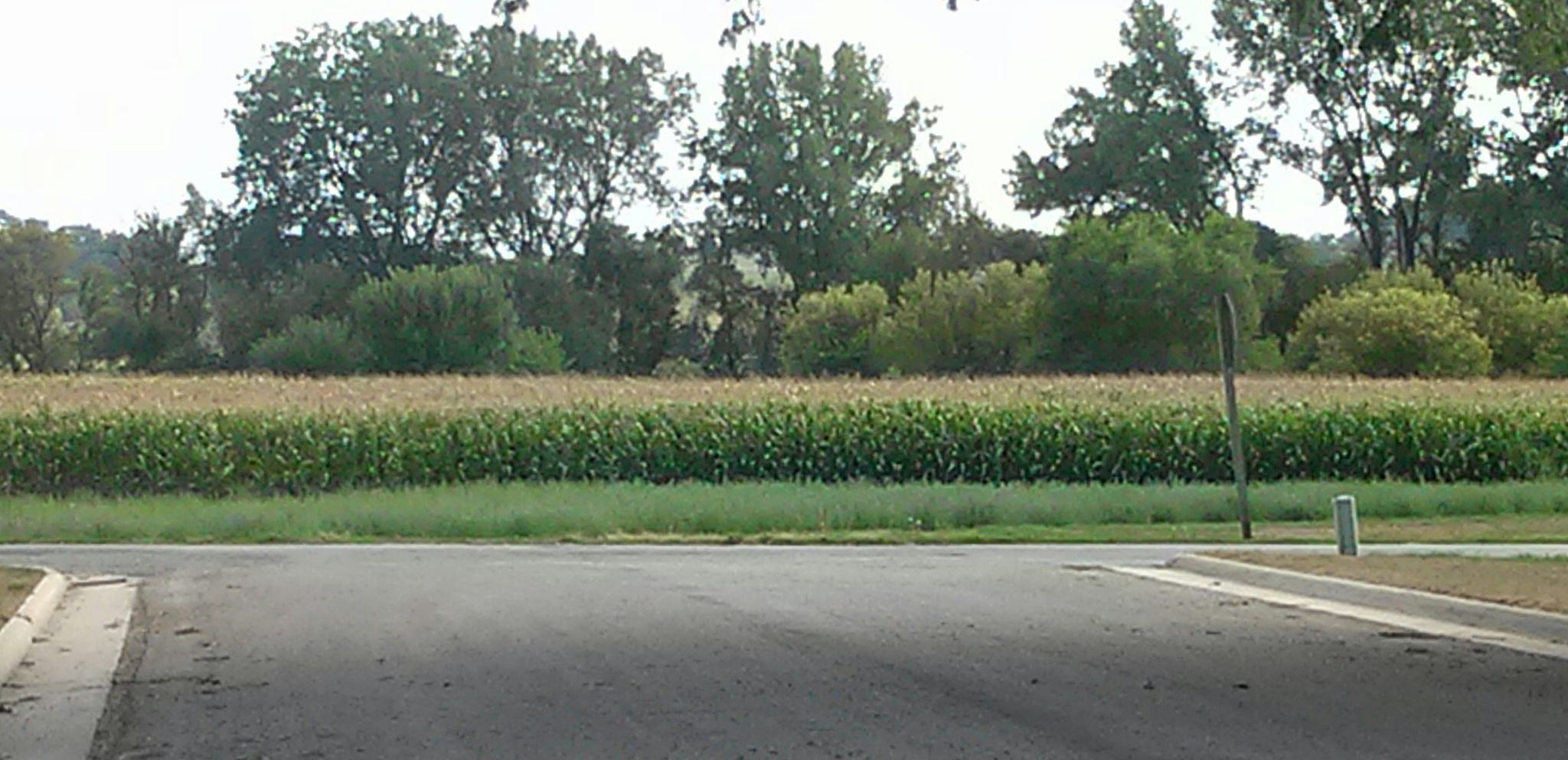
A characteristic of the state where I live is there is no ocean. That may be the dominant feature of the Hawkeye State. Sure, we have an immense drainage system that leads to the Gulf of Mexico, where we send farmland soil and chemicals at an astounding and deleterious rate. Want of an ocean changes how we grow up, learn, and live.
I grew up in a city near the Mississippi River with a population of 75,000 at the time of my birth. The Grant Wood farm scapes of note were nothing to me in my first two decades. Life consisted of family, church, school studies, commerce, and learning how to work. Farming, like that in Iowa, had little to do with it.
My great aunt Marie lived with her family on a local farm. I remember visiting them a couple of times for large family gatherings. It was a form of exoticism that made Aunt Marie approachable and harked back to when she was born on a Minnesota farm with her brother and many sisters. Farming as I knew it was a form of nostalgia. Aunt Marie was able to attend the wedding reception Mother hosted for us at her home, along with a couple of her sisters. It seemed at the time just something people did in a city.
The connection of the Mississippi River with the ocean was understood. In my early years I spend time by the river bank. I looked past the refuse of crumpled paper cups, abandoned fishing tackle, spent condoms, and such scattered on the shoreline. I looked across the one mile of water toward Rock Island. While Father’s family emigrated from Florida to Rock Island after World War II, that city seemed exotic, not unlike the way Aunt Marie’s farm did. I preferred the city where I was raised.
We took a childhood family trip to Florida and swam in the ocean. I tasted the water to see if it truly was salty and found it was. The ocean was an exotic place of its own. A place for special trips and limited, controlled experiences. This exoticism prevented understanding of much that was written about living near the ocean. It was as if a whole set of literary metaphors had been removed from the intellectual environment and was inaccessible to me. It made some verse and stories incomprehensible and there seemed to be no good alternative.
With high school friends I visited Assateague Island in the Atlantic Ocean. We were visiting classmates at Georgetown University in Washington, D.C. and wanted to escape the city. It wasn’t the city. I don’t know what it represented other than youthful ambition to connect with nature. Most of the memories I brought home from that trip have nothing to do with the ocean.
We live in Big Grove Township where most of the big groves of trees were cut down and made into lumber. From the time Black Hawk ceded land after the Black Hawk War, settlers ripped up the prairie for farmland at a rapid pace. Today there is very little public land in Iowa and comparatively few state parks. There is almost no remaining prairie, just bits and pieces here and there. Instead we have fence row to fence row corn and soybeans throughout the state. People refer to Iowa fields as an ocean of corn, yet the description falls flat when compared to an actual ocean. Instead, we are a sleepy place having nothing to do with any ocean. We are the worse for want of a nearby ocean.
We adjust to other metaphors while lacking an ocean. The trap has been to consider industrial farm scapes as something valuable, some kind of alternative. They don’t reflect who we are as a people. They reflect the wealth of land owners. In the long run of a life, who indeed cares about that?
John Haines poem, “Whatever is here is native” is pinned on a bulletin board in the garage. Haines found inspiration in the peaks of the Alaskan range he could see from the cabin he built himself, in the butterfly he held in his hands, in the moose he shot and butchered. He told of stones waiting for God to remember their names, according to his obituary. Such may be our life for want of an ocean. We must accept what is here as who we are.
One reply on “For Want of an Ocean”
Indeed, the Iowa man-made landscape is quite orderly and yet dismal. Having grown up in the state, traveled and lived elsewhere, often found myself wondering if such had a lot to do with shaping the overall culture in Iowa. One which is reticent and for lack of a better word, relatively non-interesting. Is it possible that nearby oceans help to shape a more interesting culture? Then again, maybe not. Look at Florida.
LikeLiked by 1 person